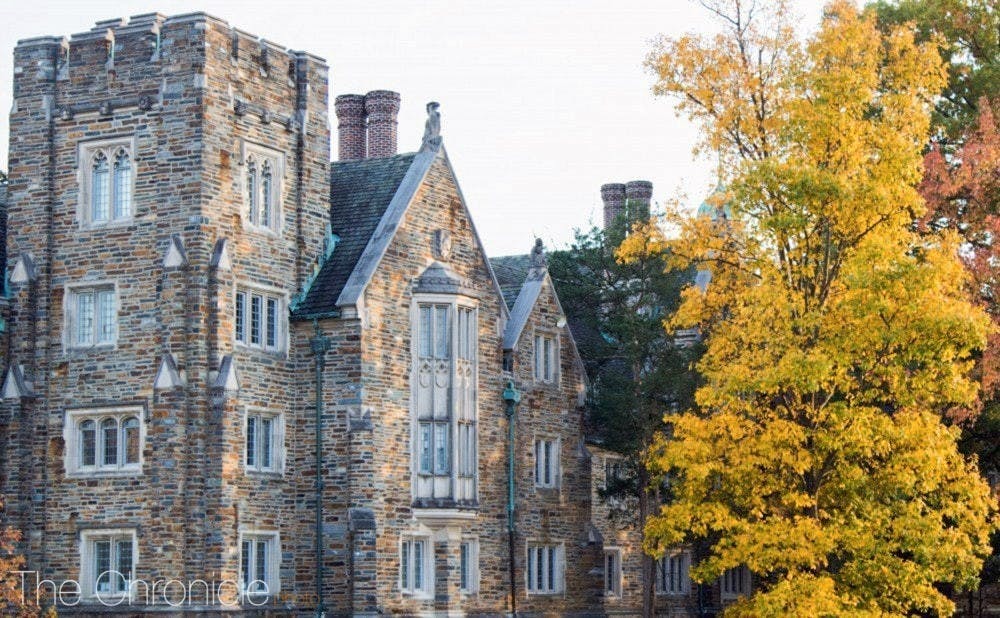Duke housing should be more selective.
I know that’s a hot take, but it’s also the truth. I don’t mean more exclusive, mind you: the last thing I want is more people turned away from groups they want to be in. I mean more selective, as in more people selecting groups to live with and more groups selecting people to live with. There is a housing crisis at Duke, and I am not just referring to the current shortages. The dorm living experience for a large portion of Duke students is nothing short of isolating, and I think many independent students would agree.
By making the housing decision a mutual process in which a student chooses a group and the group chooses them back, selective living creates a built-in community from the outset. I appreciate that I can walk down the hall of my fraternity section and open the door to any room just to have a quick chat with the people inside. Meanwhile, my independent friend who lives on West Campus would be hard-pressed to name a single person on his hall, let alone the last time he talked to one of them. My friends in SLGs and other fraternities have no such problem, and the same goes for my friends from first year who took advantage of blocking with their East Campus dorm. The process of making housing selection an active decision on behalf of the student creates the community-oriented mindset that is so valuable in making a close-knit dorm a possibility.
However, this is not a problem that can be solved by a Duke mandate or some housing policy change. It as much a Duke cultural issue as it is an administrative one. A big part of the Duke student population is competitive and achievement-oriented: in other words, many Duke students have tied selective living into a signal of social status or a way to validate their self-worth. Sites like GreekRank and the way that rush has gamified the process of finding selective living only serve to reinforce this notion. Too many people at Duke refuse to consider joining groups they consider “inferior” for some reason or another, and the result is people that would thrive in a selective living environment end up not joining any.
Not only that, but the negative perceptions of selective living have soured many people on even seeking it out in the first place: they see selectivity as exclusivity instead of a way to form community. As Reiss Becker pointed out in his most recent column, community cannot contain everyone without losing meaning. Selective living is a way of formalizing the community-forming dynamics that occur naturally in most circumstances, but are increasingly failing to work at Duke. This is not a Duke-specific issue: there is less and less community-oriented behavior across America as it becomes easier to stay at home than go out and interact with others (see Robert D. Putnam’s "Bowling Alone" for an analysis of this issue). If we want to reverse that trend at Duke, I believe selective living is the way to go about it.
I don’t mean that Duke should charter 20 more fraternities or double the rush classes for organizations. Instead, I think a few changes to the current housing structure are in order. First off, the current program that allows blocking by first-year dorm is brilliant, and a great way for people that don’t want to go through the current rush process to stick with a community they found during their first year. Second, I think Duke should work with certain selective groups that want it (or with students to create new groups) in order to create an effective alternative rush system that is more focused on inclusivity and finding the right group for each student than the current exclusion-oriented rush system with “cuts” and “rounds.” Like I mentioned above, I see the selective living as most valuable when it is a mutual process where groups and students find each other to maximize the community.
It is also difficult and somewhat hypocritical for me to offer my thoughts on this topic, since I am a member of a relatively exclusive group on campus. As a member of a fraternity, I attended rush meetings with the cuts and rounds that I just denounced. I do think the traditional rush process has some value: it is, as I said above, simply a formalization of how most people form friendships, writ large to include a whole group. However, it certainly needs restructuring to be more inclusive and to ensure that every student that wants to partake in selective housing can end up in a group that fits them well. It is, unfortunately, easy to say that and incredibly difficult to enact such a policy, both logistically and culturally at Duke. That said, I think we as a community should begin to reevaluate how we think view selective living. First, we need to realize that it is a good thing for a lot of students; second, that it ought to be a mutual process that serves both the group and the student; and third, that if we don’t do something, the decline in community at Duke will continue unhindered.
Andrew Elcock is a Trinity sophomore.
Get The Chronicle straight to your inbox
Signup for our weekly newsletter. Cancel at any time.

